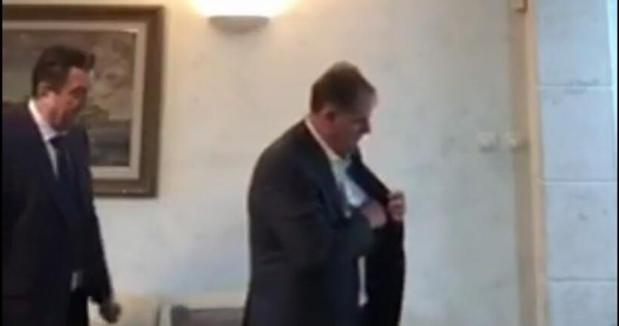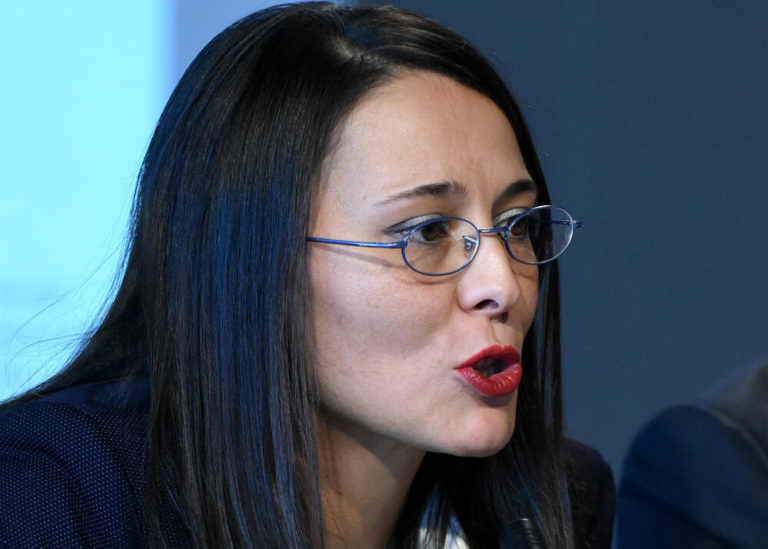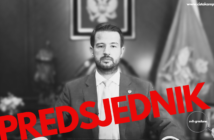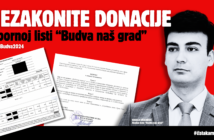The new Law on Financing of Political Entities does not provide for criminal liability and sanctions for false accounting, despite the “Envelope” affair, as well as recommendations of international experts.
Many segments of the new law are weaker and a step backwards compared to the 2015 regulation, while of particular concern is the fact that it is not defined who is responsible for the party’s financial statements and sanctioned in case of false accounting, according to analyses by Tilman Hoppe, Senior Advisor for the German Bundestag, independent anti-corruption expert.
He analysed the previous regulation on financing of political entities and gave recommendations for amendments. In April this year, he completed the analysis of the adopted Law, according to which the elections should be held on August 30.
“However, the most striking weakness of Law 2020 is that sanctions remain almost entirely administrative and are in many cases restrained to minimal fines, and pale in their lack of deterrence, if compared internationally”, he noted.
Hoppe emphasizes that his recommendation to determine the responsibility for reporting in a way that the chairperson, i.e. the candidate and the responsible person are the ones signing the financial statements, and thus confirming the truthfulness of the given data, was not adopted.
“It should be recalled that without a clear definition who is (at minimum) responsible for financial reports, there is no or little accountability. The same is true, if the responsible person is just a front person, which can easily be “sacrificed” to criminal liability. In other words, financial compliance is a responsibility of the top, not of “just any” designated person. The German law for example defines exactly who signs the financial reports (Political parties: chairperson and board member responsible for finances = responsible person). Law 2020 does not implement this recommendation”, Tilman states.
This recommendation followed the opening of the “Envelope” affair and publishing of a video showing Duško Knežević, Atlas Group President, handing over an envelope allegedly containing about $ 100,000 to DPS official Slavoljub Stijepović for the party’s campaign.
Criminal sanctions for false accounting
Earlier, Hoppe also proposed an amendment to the Criminal Code and criminalization of submitting incorrect financial statements, as well as the introduction of a new criminal offense – illegal political financing. These recommendations were not implemented.
“The entire area of false accounting remains without sanction to a large extent under current legislation. The suggested reimbursement of public funds in cases of incorrect financial statements would remedy this gap to some extent. However, one also needs to deter the natural persons responsible for financial statements. For cases involving a significant amount of money, the acts referred to in Articles 53 and 56 of this Law should be complemented with criminal sanctions. That is why the new article, 425, ‘Illegal Political Financing’, should be prescribed by the Criminal Code, in order to reflect the limit values and sanctions from Article 244 of the Criminal Code (fraud)”, Hoppe said.
He believes that paragraphs should be added to that article of the Criminal Code, according to which anyone, who in the course of political financing raises funds from private sources beyond the legal limit, exceeds the costs of an election campaign beyond the legal limit, provides or receives material and financial assistance and in-kind contributions from prohibited sources, exerts pressure on legal entities, companies and natural persons in raising contributions or any other activity related to the election campaign or financing of political entities, or fails to return the funds to the Budget of Montenegro in case private funding exceeds legal limits, and the funds or value exceed 3,000 €, shall be punished by a fine or a prison term up to three years.
He points out that a paragraph should have been added that where the funds or value exceed 30,000 €, the perpetrator shall be punished by a prison term from one to eight years. ”These recommendations were not implemented in the 2020 Law…”, Hoppe states in the analysis.
Better to break the law and hope that it will go unnoticed
Hoppe had previously proposed introducing requirement for multiple reimbursement in case of violation of the Law:
“Furthermore, as an incentive against violations, the reclaiming can be doubled or tripled as in other jurisdictions. The evident rationale behind such provisions is that if one only reclaims the exact amount disbursed earlier, it is more profitable for a political party to try violations and hope that they will not be detected. In other words, reclaiming a multiple of the disbursed public fund takes into account that behind any detected violation hide more undetected ones.” Law 2020 does not implement this recommendation as well. Although the new law defines the loss of the right to budget funds in much more detail, it does not introduce requirement for multiple reimbursement.
His recommendations to provide better protection for whistleblowers, and to more adequately regulate foreign funding, were not accepted either.
Hoppe also notes that 2015 regulation better defined the failure to distribute funds and the use of official car for campaign purposes. However, he commended several segments in which, as he states, transparency has improved.
Ćalović Marković: It is not a reform, only cosmetic amendments for the interests of DPS
The opinion of experts confirms that DPS did not have a sincere intention to implement the reform of the election legislation, but to change the Law in order to integrate its own interests, Executive Director of the Network for Affirmation of NGO Sector, Vanja Ćalović Marković, said.
According to her, that is why this party, in response to the “Konik” affair, increased the upper threshold for donations for natural and legal persons.
“They did so in order to be able to falsify official reports more easily. This was confirmed by the president of DPS (Milo Đukanović), when he said that the party submits reports in the form requested by the institutions, and that he knows that there is also a list of large DPS donors, such as the president of the Atlas Group, Duško Knežević. At the same time, new bans that were introduced in order to show the alleged reform character of the Law, are full of contradictions, which leave room for interpretations by the Agency for Prevention of Corruption, which have been mainly in favour of DPS so far”, Ćalović Marković said.
What is especially surprising, she emphasizes, is that “we have been hostages of DPS’ story about foreign election funding for four years.”
“The law does not include important restrictions that international experts have warned about. Therefore, the Law on Financing of Political Entities and the Criminal Code have undergone only cosmetic amendments, thus, foreign election funding will continue to affect our political life. All this has been seen many times before, but this is most surprising. This confirms that DPS does not want to resolve this issue, but to keep it as a reserve topic for drawing attention after these elections as well.”




